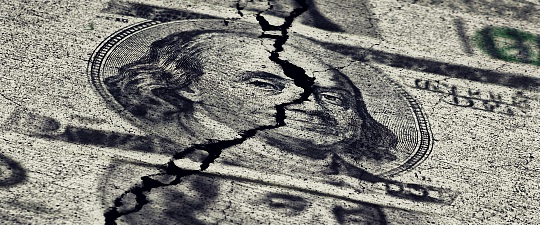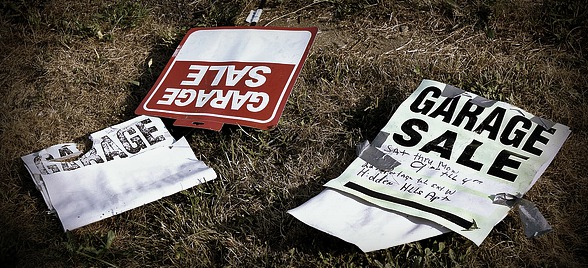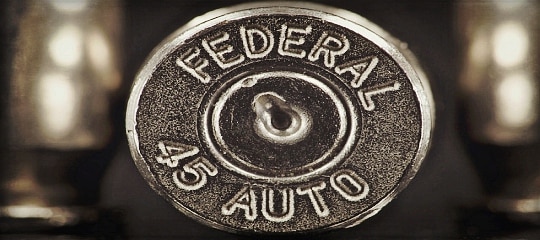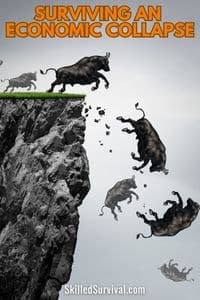
A Complete Guide To Surviving A Total Economic Collapse
Because the economy of the United States is, in theory, a Free Market economy.
This means it follows the rule of Supply and Demand.
Our economy is not complicated.
- Things with high demand (and low supply) are worth more.
- Things with low demand (and high supplies) are worthless, or maybe nothing at all.
The financial markets are self-regulating, self-correcting, and pretty much in line with the laws of nature.
So what happens with it collapses? And how can your prepare for this?
Today I’ll answer these questions (plus so much more):
- The Consequences Of Excess Inflation
- Where Does All This Money Coming From?
- How Much Does The Federal Reserve Have?
- What Happens In A Total Economic Collapse?
- How To Prepare For Economic Collapse…
- When A Single Cartridge Can Be Bartered
- What About Stockpiling Food, Ammo, Vices?
- The Value Of Gold After The Collapse
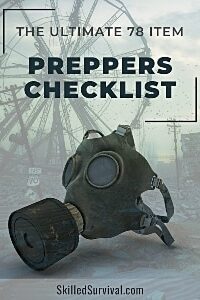
Want a free 78 item bug out bag checklist?
Enter your email below to instantly download this Complete Checklist PDF. No purchase necessary. 👇 👇Consequences Of Printing Excess Dollars
In our modern society, we trade paper money to indicate value.
Many think THIS paper has no value, but this is not true.
Anything has as much value as someone is willing to trade for it.
I can give my local grocer $3.25 for a gallon of milk.
Why? Because he believes my $3.25 of paper money is tradable for his needs.
The paper reflects the value of the item or service.
Some problems arise from this system.
For example:
When governments print excess paper dollars, you get inflation.
Or, in some cases, not enough paper money (deflation).
Why Would A Government Print Excess Dollars?
Well, the first reason is – simple mistakes.
The Federal Reserve (aka Central Bank) monitors the dollars in circulation.
Then it adjusts the Prime Interest rate.
Down to encourage banks to borrow more or up to borrow less from the Federal Reserve System.
If the Fed wants to combat inflation, they raise interest rates.
This then draws money out of circulation as banks pay large interest payments on the loan back to the Fed – thus removing the dollars from circulation.
It can lower interest rates if the Fed wants to stamp out deflation or stimulate the economy.
This creates more demand for borrowing and easy lending, incentivizing economic activity.
The general assumption is the Fed has the best interest of the US at heart.
That they always do what is best for the economy and the people.
But, when political forces are present, the President appoints the Fed Chairman, and the Fed may drop interest rates for political reasons.
To keep the easy money pumping money into an economy.
A process of slowly bleeding it to death.
Many believe that’s what’s been happening over the past few decades and today.
In the past, the Treasury sold bonds to pay for government borrowing – to pay the bills for our perpetual deficit spending.
But selling bonds affects much of our public debt to foreign governments.
Governments such as China, Japan, South Korea, Britain, etc.
These countries loan our government money and get paid back interest in return.
Large-Scale loaning of this sort has led to an over $20 trillion national debt (and counting)!
Due to this growing debt, these countries are starting to worry about our ability to repay this debt.
Every congressional budget cycle, we borrow more to pay off our old debt.
China, Japan, and others have cut back on their purchases of our treasury bonds.
We continue to spend more than we take in.
↓ The Debt Ceiling Explained
So Where Is All The Money Coming From?
The procedure currently is Monetization.
Monetization means we are creating dollars with which to pay off our debt.
Our Federal Reserve is loaning money to banks at a very low-interest rate.
The banks are buying Treasury bonds, which pay higher interest than the Fed is charging the banks.
These bonds allow the banks to take money from the Fed and move it to the Federal Treasury.
This then gives our Government the dollars they need to continue spending.
And the banks earn some interest with absolutely zero risks.
They essentially act as a money-laundering operation for the Federal Government.
Why do they do this?
Two reasons:
First off, banks have to make money to exist.
They make their money by loaning money.
The Federal Government has never reneged on a Treasury bond yet. So it’s a very safe investment.
In fact, the banks know the Government will go so far as to borrow more money to pay off the bonds.
Only failing businesses “borrow to pay off debt,” and they can only borrow so much.
Secondly, the Government can borrow as long as they have bond buyers.
And the Federal Government regulates the banks.
So if they’re not cooperative, the Government has tactics for making their lives a living hell.
Today the Fed’s purchases and transfers are all electronic and instantaneous.
The Fed says they will buy a bond, and the Treasury prints more money and then moves it into the Government coffers.

Want a free 78 item bug out bag checklist?
Enter your email below to instantly download this Complete Checklist PDF. No purchase necessary. 👇 👇So How Much Does The Federal Reserve Have In Reserve?
No one knows.
By law, the Federal Reserve cannot be audited.
The idea is the Fed is independent of political parties and the Government.
If the Fed could be audited, then political pressures could be placed on it by minority parties.
This could provide an accurate picture of the Fed’s reserves in desperate times.
This might cause public panic, bank runs, and even impact elections.
The irony is the measures put in place to keep the Fed independent also provide the means to manipulate it by the political party in charge.
Although many would like to see the Fed audited – the result could very well bring down the country.
The whole thing is a financial crisis waiting to happen.
A house of cards we as citizens can only hope is being managed correctly.
“Hope” is the key descriptor.
One saving grace is that the US dollar is the world reserve currency.
There is a lot of tangible value out there in the world wrapped up in our paper dollars.
If the rest of the world ever drops the dollar as a global reserve – our dollar will go the way of the Russian Ruble.
The good news is that most other national currencies are even less reliable than ours.
Although China now has a larger economy than the United States, no one trusts their money.
We are truly the best of the worse.
It’s evident to any free-thinking citizen this system is rife with risk and corruption.
↓ Global Currency: The Dollar Ain’t Going Nowhere
What Happens When The Coming Economic Collapse Finally Occurs?
Simple.
The dollars we each have in our accounts, our 401Ks, and our wallets may become worthless, or nearly worthless, due to hyperinflation.
A total economic collapse has happened to dozens of countries in the last thirty years:
- Iceland
- Russia
- Zimbabwe
- Bolivia
- Bosnia
- Mexico
- Nicaragua
- Peru
- Poland
- Ukraine
- Romania
And to the United States several times since our founding.
Most notably after the Revolutionary War, during the Civil War, and the Great Depression.
And the Federal Reserve didn’t even exist at those times.
- So what happens when paper money becomes worth just that—worthless paper?
- What is your economic collapse survival plan?
- What will we use for money?
Remember, goods and services are tangible.
Many will still exist after the coming economic collapse.

Want a free 78 item bug out bag checklist?
Enter your email below to instantly download this Complete Checklist PDF. No purchase necessary. 👇 👇How To Prepare For Economic Collapse
One fundamental principle to remember: don’t mistake cash dollars for value.
Cash dollars only have value if they can be traded for something with real value – items such as food, tools, hardware, fuel, etc.
- But what if no one will take dollars in trade?
- What becomes the new collapsed economy’s currency?
- What will the coming economic collapse look like?
The new economy will still operate under the rules of supply and demand – no getting around this.
It’s a law of nature.
The more in demand something is, the more value it has, and the more people will pay to get it.
But what will people use as currency if dollars are useless?
The Barter Economy
The Barter Economy is the natural evolution of supply and demand when the dollar fails.
This means people will trade tangible assets rather than paper money.
Not all tangible assets will hold the same value.
For instance, fish holds a certain value as a food source.
But a fishing pole will be hundreds of times more valuable.
So what are valuable tangible assets to help survive in a post-apocalyptic economy?
Survival food will have value, while heirloom seeds may have more in the long term.
Eggs hold value, but chickens have more.
Water always has value and will keep climbing in value as droughts and contamination continue to deplete supplies.
The asset’s value depends on whether they represent short-term or long-term value.
Food is immediate.
Durable goods are long-term.
Some common durable goods that will hold value include:
- Hand tools include saws, drills, hammers, axes, knives, etc.
- Rope, wire, paracord, fasteners, nails, building materials, generators, solar panels, survival stoves, batteries.
Some durable goods are hybrids – both short and long-term.
Cars, for instance, have long-term value.
But they are only as valuable as the availability of fuel, which is a short-term value.
↓10 Cheap Items That Will Go Up In Value After A Collapse
There Are A Few Exceptions, Though…
Firearms have long-term value.
However, the availability of ammunition has a short-term value.
This should limit a firearm’s value, right?
Not exactly; firearms represent an anomaly.
A loaded firearm can mean the difference between life and death.
This gives it the ultimate value to the individual possessing it.
More valuable than food, water, or any other worldly possession.
In the case of a less altruistic individual, a loaded firearm can serve as a coercive force.
One to gain tangible assets belonging to someone else.
Giving the firearm value equal to whatever it can gain in this less-than-moral fashion.
This is something to keep in mind when trading with someone with an AR-15 slung over his shoulder.
Ammunition is an important asset even if you don’t own a firearm.
So you could start storing lots of it to prepare for the coming economic collapse.

Want a free 78 item bug out bag checklist?
Enter your email below to instantly download this Complete Checklist PDF. No purchase necessary. 👇 👇Even A Single Cartridge Can Be Bartered
A single .30-06 rifle cartridge can be a difference-maker.
The difference between a family eating or moving a week closer to starvation.
A $25 box of 525 .22 Long Rifle cartridges represents months of small game on the dinner table.
Providing essential proteins such as squirrels, rabbits, snakes, rats, etc.
One key point to remember: the rifle cartridges still represent months of food, even if you don’t own a rifle.
The trick is to find someone who does and trade them for something of equal value.
Ammunition is a great way to prepare for a post-apocalyptic world.
Rifle and pistol cartridges will always have value if you store them right.
One strategy to use is to arm yourself with firearms using very common cartridges.
The more common, the better.
The most common pistol cartridges are 9mm, 38 Special, and .45 ACP.
The most common rifle cartridges are 22 Long Rifle, 7.62x39mm, and 5.56x45mm.
Another important category with significant value is the difficulty in getting medications, like survival antibiotics and medical supplies.
When civilization’s economy collapses, our access to medications will dwindle.
However, people will continue to fall ill, perhaps in even larger numbers than before.
Even over-the-counter drugs will become incredibly valuable.
Some common medications and medical supplies to stock up on include:
- aspirin
- acetaminophen
- antibiotic creams
- antihistamines
- cough syrup
- cold and flu medications
- Band-aids
- bandages
- alcohol
- hydrogen peroxide
- oral thermometers
Or invest in a couple of good survival kits, and you’ll be good to go.
What About Vices For Economic Collapse Preparation?
People’s addictions don’t stop just because civilization has collapsed.
Here are a few that can be used for barter: cigarettes, beer, hard liquor, and if your post-apocalyptic address is in Colorado, well, you know…
How About Gold After The Coming Economic Collapse?
Precious metals have been used as investments and currency for thousands of years.
How do these fare in a post-apocalyptic world?
These assets represent a very different animal.
People will still value gold even in a post-apocalyptic world.
However, this value is very, very long-term and somewhat theoretical.
It’s based on the notion that the world will return to a normal state in the future.
At that point, the gold can be exchanged for cash.
Survival Gold has no immediate value.
- You can’t eat it
- It can’t catch a fish or kill a deer
- It can’t protect you or your family
However, some people will take it in trade.
Supreme caution must be exercised if you advertise the fact you possess gold.
If you try to trade with it, you will likely find someone with an AK-47 following you home.
Once there, if necessary, to relieve you of the rest of your gold by force.
Gold and silver are great investments to hedge against inflation, but only as a hedge.
It presumes the cash dollar still has some value. If the dollar fails completely, gold is nearly useless.
The people who do want it are the same people you don’t want to meet.
The barter economy will begin on Day One of the coming economic collapses.
What will you use on Day Two to provide for your families?
Better to begin stocking up today before it’s too late.
Why Trust Skilled Survival...
Go here now to review a full breakdown of:
- Who We Are
- Our Credentials
- Our Mission
- & Product Recommendations...
Here are a few highlights of our teams credentials & certifications:
- Certified Member of a Mountain Search & Rescue Organization
- Plant Emergency & Safety Leader for a Major Food Manufacturer
- Member of the 10TH Mountain Division Hut Association
- Certifications: Avalanche 1, WFR, CPR
- Official Gear Tester for Numerous Outdoor Gear Companies
- Countless Multiday Backpacking trips into Remote Wilderness
- Bachelor's Degree In Mechanical Engineering
- Bachelor's Degree In Civil Engineering
- Bachelor's Degree In Biomedical Engineering
"It takes 20 years to build a reputation and five minutes to ruin it." - Warren Buffett
We're fully aware that trust is NOT something you GET but is EARNED.
And we'll continue to earn YOUR trust through our forthright and honest approach with each new Blog Post, Guide & Product we create...
Prepare, Adapt & Overcome,

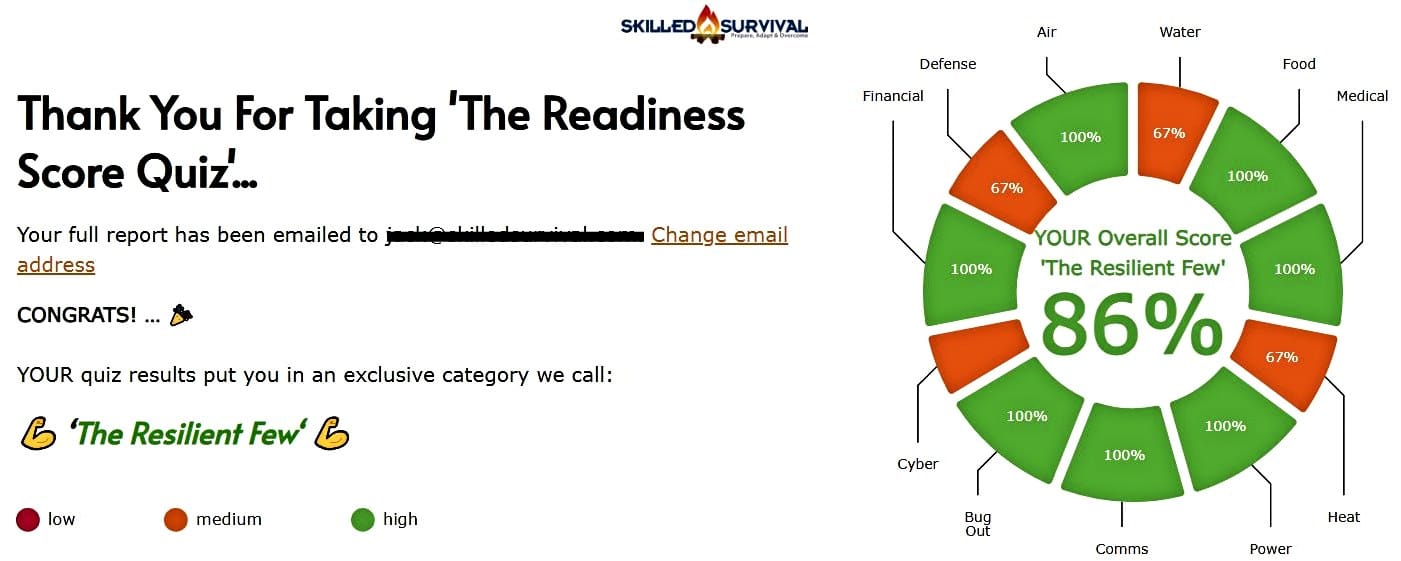
AND... I've still got a few gaps in my preps...🤔 But at least, I'm not part of 'The Fragile Masses'. 👍 Find out where YOU stand by answering a few questions...
Photo Credits: Bank / Garage Sale / Ammo / Cigs
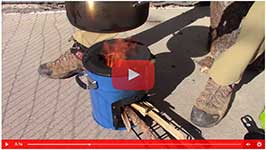
Recommended Reading
Best Fuel Storage Ideas: How To Store Extra Gasoline
Long term fuel storage is crucial in all survival situations, but fuels must be stored properly and safely to keep, especially long term gasoline storage.
How To Store Seeds For Wise Prepping & Survival
When seed saving and seed storage, you must do it right. Learn how to store seeds so they'll thrive the next planting season.
Common Everyday Carry Mistakes YOU Must Avoid At All Costs
The only person qualified to build YOUR Best Everyday Carry (EDC) is YOU. To do it right, you must avoid these common mistakes and pitfalls.
Strategic Relocation: How To Find A Safe Pace To Live
Use strategic relocation to find a safe, defendable location to call home. Your choice of location WILL determine your survival fate.
Map Of Nuclear Fallout: Would I Survive A Nuclear Bomb?
Have you seen a map of nuclear fallout? Or run a nuclear simulation to see the damage a nuke would do to your city? If not, check this out.
Homestead Survival: How To Master Plan Your Own Safe Haven
Use this simple 6 step action plan to successfully plan and build a homestead to survive (and thrive) even if the world falls into chaos...

